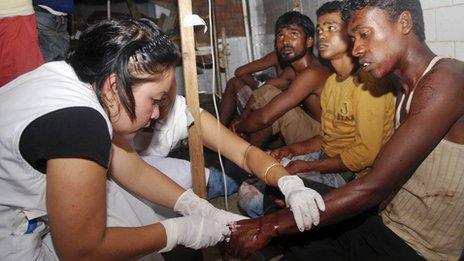Indian raid in Myanmar raises regional tensions
- Published
Sanjoy Majumder reports: "Here on the border, they're just hoping things calm down soon"
A cross-border raid last week by Indian soldiers into Myanmar has raised regional tensions. The unusual operation targeted insurgents after the biggest rebel attack on Indian soldiers in two decades.
The BBC's Sanjoy Majumder travelled to the north-eastern state of Manipur where the attack took place.
The road from the remote Manipur district of Chandel to Myanmar is deserted. It is not until an hour into our drive that we come across the first sign of life: an Indian army patrol is moving slowly across the mountains, looking into the thick foliage for any sign of activity.
The soldiers are from the 6 Dogras unit. Earlier this month, on this very road which winds across the mountains through thick forest, 18 of their colleagues were killed in an ambush by rebels.
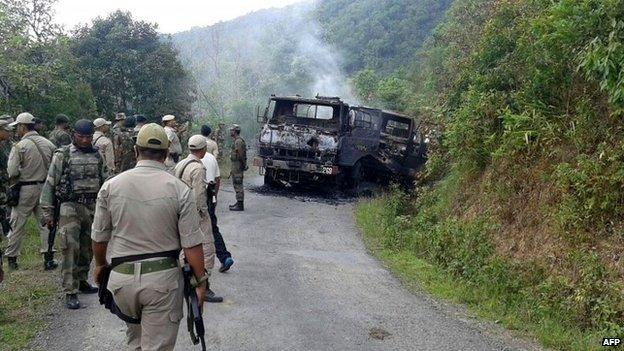
An ambush in Manipur earlier this month killed 18 Indian soldiers
A radio set crackles to life and the unit commander relays the information that we are safe.
A few kilometres ahead we reach the site of the attack. An army truck is almost on its side, completely charred. There are large dark patches on the ground and on one side are the remains of three rocket-propelled grenades.
"Be careful," a soldier warns us. "Stay on the middle of the road, there could be explosives."
'Stay inside'
The border is only 25km (16 miles) up ahead, with the forested mountains in between. That's where the rebels came from and that's where they retreated after the attack.
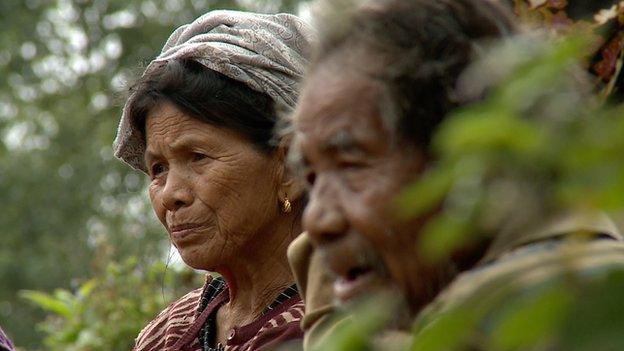
Villagers in Manipur say they are on edge after the recent clashes
The villages in the vicinity of the attack are almost all deserted, with only a few animals and chickens around. In Darchol, I find a group of old women who have just come in from their fields. They say they are nervous after the attack and with all the soldiers around.
"We can hear them in the night carrying out their searches," says Hingam. "We just lock our doors and stay inside."
She says they were not allowed to go to their fields in the days following the attack. "But after our village council leaders spoke to the army they relented."
Much of the border is virtually indistinguishable and so easy to cross.
Moreh is the last town on the Indian border. Across from it is Tamu, in Myanmar's (Burma's) Sagaing region. People from both sides can cross over legally and have used it to trade for years.
In Tamu's main market, Manipuris mingle with ethnic Burmese. One of the main rebel camps is said to be close to the town - but no-one is willing to say anything about it, or in fact anything about the recent events.
"We saw something about it on television but we don't really know much about it," says one woman.
Pressure on Delhi
India has released few details of the military operation inside Myanmar.
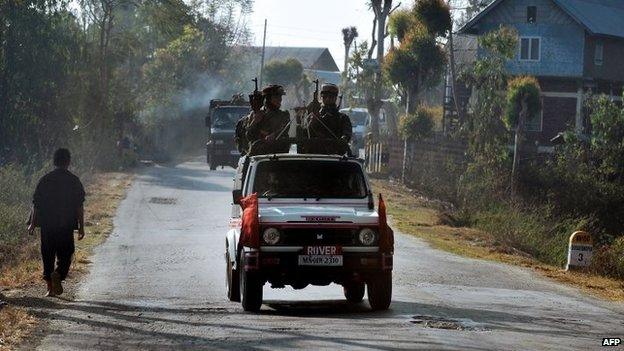
India has increased troop patrols in the north-eastern state of Manipur following the rebel attack
While some villagers have spoken about having seen helicopters with soldiers land near the border, many in Manipur are questioning the Indian government's description of the raid as a major success.
"No pictures have been released to show the extent of the damage on the rebel camps or of any bodies," says one young man, refusing to give his name.
"Most of the rebels have families in Manipur. If many had died, word would have got out. And it hasn't."
Reports now suggest that the raid may have targeted a couple of small camps close to the border.
Ajai Sahni of the Institute of Conflict Management says it was a relatively minor operation.
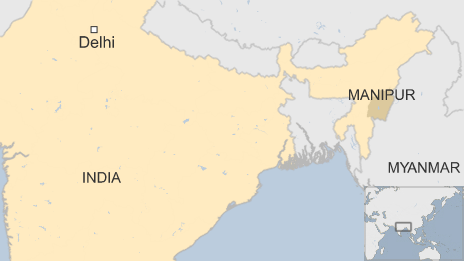
"We should have selected a hard target, deep inside Myanmar and hit some leadership cadres," he says.
"Instead we have hit the softer and most proximate camps, which is why there was little retaliatory fire with no casualties on the Indian side."
Despite the lack of detail about the operation and what it achieved, it has raised tensions in the region.
There's talk of more military action, but there's also pressure on Delhi to tone down the rhetoric and calm things down.
That is certainly the hope along the border here is Manipur.
- Published10 June 2015
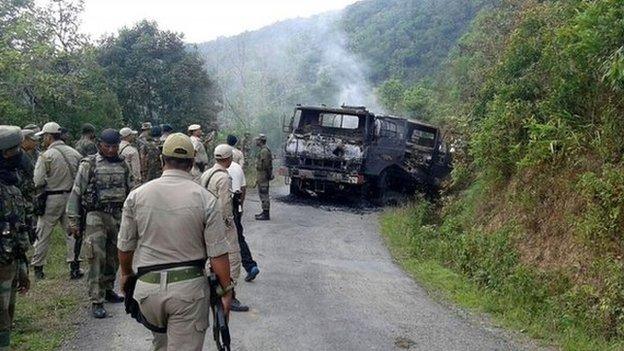
- Published4 June 2015
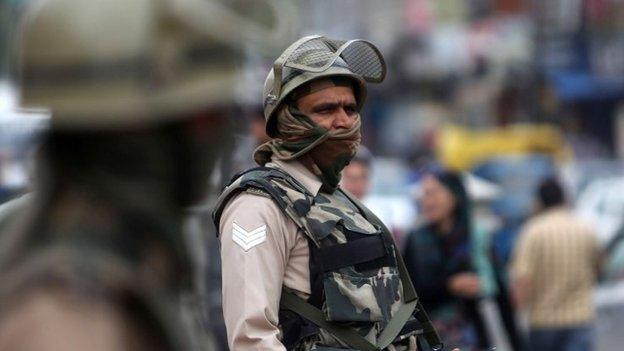
- Published2 November 2014
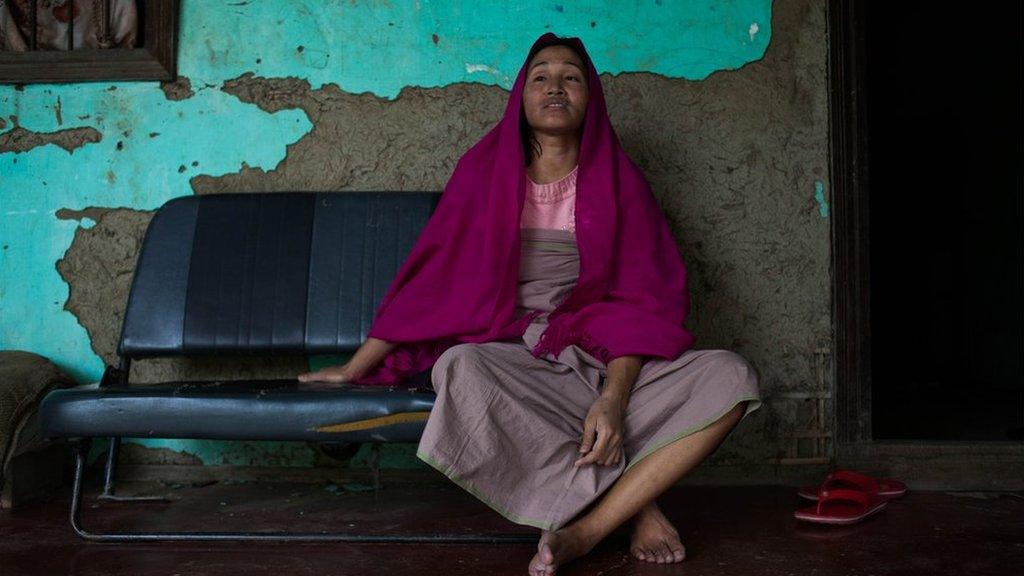
- Published14 September 2013
